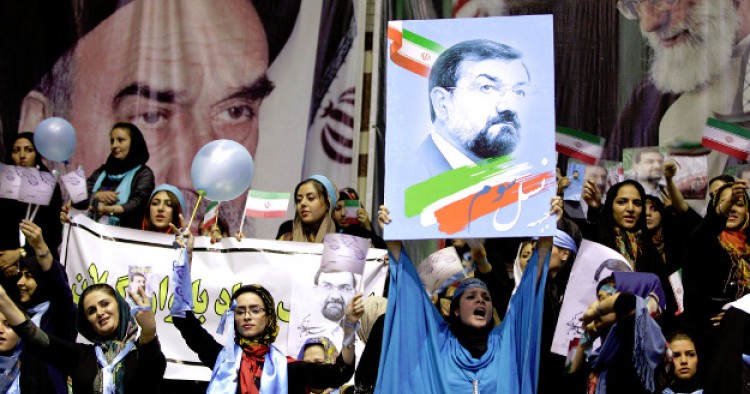Secretary of Iran’s Expediency Council Mohsen Rezaei has warned the Islamic State that any attacks against Iranian targets at home or abroad will trigger a strong response by Tehran against the terrorist group. “Daesh [Islamic State] has threatened Iran in a video message. First, it should be said that you are all on the run everywhere. Second, if you carry out any action inside Iran or against our interests outside the country, we will chase you wherever you are and will severely punish you,” the former chief commander of the Islamic Revolution Guards Corps (I.R.G.C.) wrote in his personal Instagram page on Thursday. “The calamity that will befall you will be worse than your defeat in Mosul and Aleppo,” he added – claiming that Islamic State militants were spared “harshest punishment” in the Iraqi and Syrian cities because the presence of civilians allowed their escape.
Comment: The I.R.G.C major general’s comment is a reaction to a rare Islamic State video threatening to attack and conquer Iran. One Islamic State militant in the video directly threatened Iran’s Supreme Leader Ali Khamenei and his authority. "Oh, Khamenei, you cursed person, you who has the control of the idolatrous so-called Islamic Iranian regime in your unclean hands, rest assured that soon we will destroy your house like this on your head," he said pointing to ruins behind him.
The video clip in Persian language appealed to Iran’s Sunni minority to rebel against the Shiite-dominated regime in the country. Although Iran’s Sunni minority has long suffered state discrimination and persecution, the Islamic State has not had success in recruiting from the Iranian Sunni community so far.
But, as noted in Rezaei’s comments, Iranian leaders will most likely exploit the threatening video by the Islamic State to justify Iran’s military interventions in Syria and Iraq. Recently, many Iranians have criticized the government’s costly involvement in foreign conflicts at the expense of domestic priorities. The video presents I.R.G.C. leaders a rare opportunity to convince Iranians that they have to fight in foreign lands to prevent the threat from spilling over into Iranian territory.
The Middle East Institute (MEI) is an independent, non-partisan, non-for-profit, educational organization. It does not engage in advocacy and its scholars’ opinions are their own. MEI welcomes financial donations, but retains sole editorial control over its work and its publications reflect only the authors’ views. For a listing of MEI donors, please click here.













